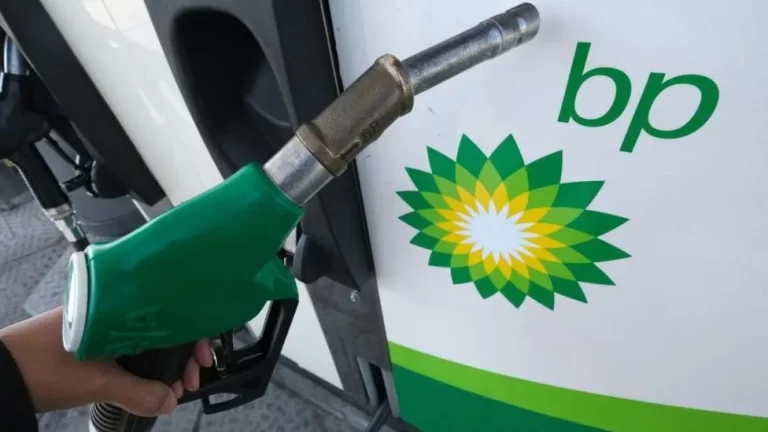Energy giant BP has reported a sharp drop in profits after oil prices fell last year.
Profits were $13.8bn (£11bn) in 2023, down from a record $27.7bn in the previous year. Energy firms reported huge gains when oil and gas prices soared in the aftermath of Russia's invasion of Ukraine because of fears over supplies.
While households energy bills have fallen since 2022, they still remain at a high level. The results are the first released by BP since the company announced Murray Auchincloss as its new chief executive.
Previous boss, Bernard Looney, resigned last September after admitting he had not been “fully transparent” about his past personal relationships at the firm. BP's board said Mr Looney had committed “serious misconduct”, resulting in him forfeiting up to £32.4m in pay and benefits.
The fall in BP's profits echo the results from rival Shell, which last week posted profits of $28.2bn, down from $39.9bn in 2022.
Despite the drop, BP plans to hand back $1.75bn to investors during the first three months of the year through share buybacks. It added that it was committed to $3.5bn of buybacks over the first half of 2024.
BP also said it expected “underlying production from oil production and operations to be higher” this year, but production from gas and low carbon energy to be lower. Last year, BP came in for criticism from environmental groups after it scaled back plans to reduce the amount of oil and gas it produces by 2030.
However, one investor group has called on BP to scrap its targets for lower oil and gas output altogether, calling them “irrational”. Gas and electricity prices started to climb when Covid lockdowns ended, but jumped in March 2022 when Russia launched its assault on Ukraine.
The price of benchmark Brent crude oil reached nearly $128 a barrel soon after the invasion, but it now stands just below $80. There had been fears that oil prices might surge as a result of attacks on shipping in the Red Sea by Houthi rebels, but so far they have been little-changed.
The attacks led many companies – including BP – to divert ships away from the route through the Suez Canal. It is the quickest sea route between Asia and Europe and is particularly important in the transportation of oil and liquefied natural gas.
— CutC by bbc.com


